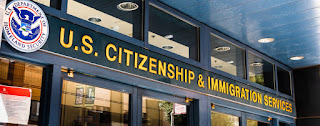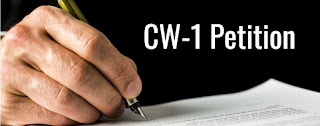On March 20, 2020, The United States Citizenship and Immigration Services announced that it will accept all benefit forms and documents with reproduced original signatures, including the Form I-129, Petition for Nonimmigrant Worker, for submissions dated March 21, 2020, and beyond [PDF version]. The USCIS's decision is due to the ongoing coronavirus outbreak.
The USCIS notes in its news release that it already accepts various petitions, applications, and other documents with electronically reproduced original signatures. By this, the USCIS “means a document may be scanned, faxed, photocopied, or similarly reproduced provided that the copy must be of an original document containing an original handwritten signature, unless otherwise specified.” The USCIS's new temporary policy applies to forms which otherwise require an original “wet” signature, as set forth in form instructions.
The USCIS notes that this policy is temporary. Furthermore, all other form instructions other than those pertaining to original signatures on affected forms still apply. The USCIS may, in its discretion, request original documents. If such documents are not produced upon request by USCIS, the USCIS's may weigh such failure negatively in adjudicating the applicable petition, application, or benefit request.
Please visit the nyc immigration lawyers website for further information. The Law Offices of Grinberg & Segal, PLLC focuses vast segment of its practice on immigration law. This steadfast dedication has resulted in thousands of immigrants throughout the United States.
Lawyer website: http://myattorneyusa.com



